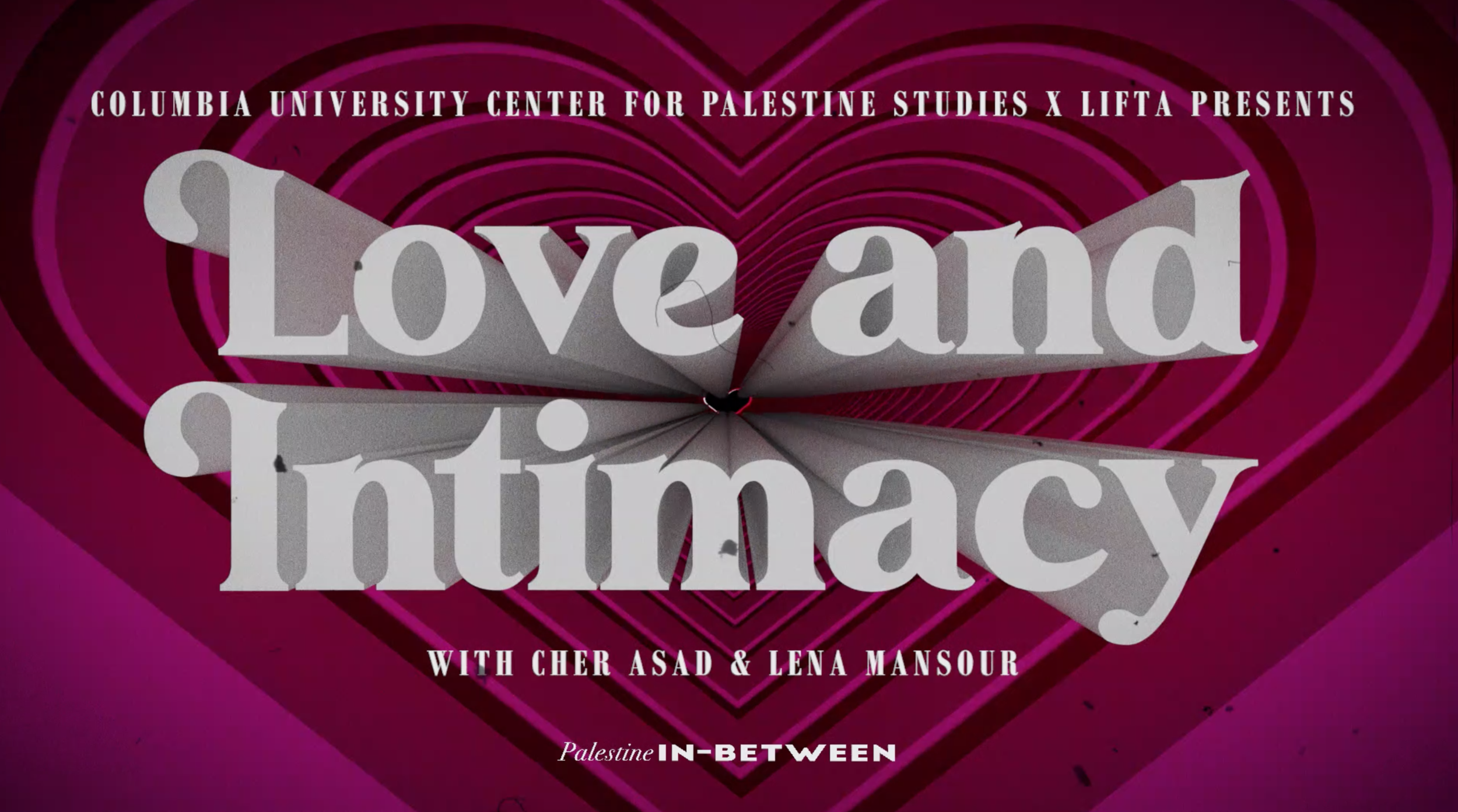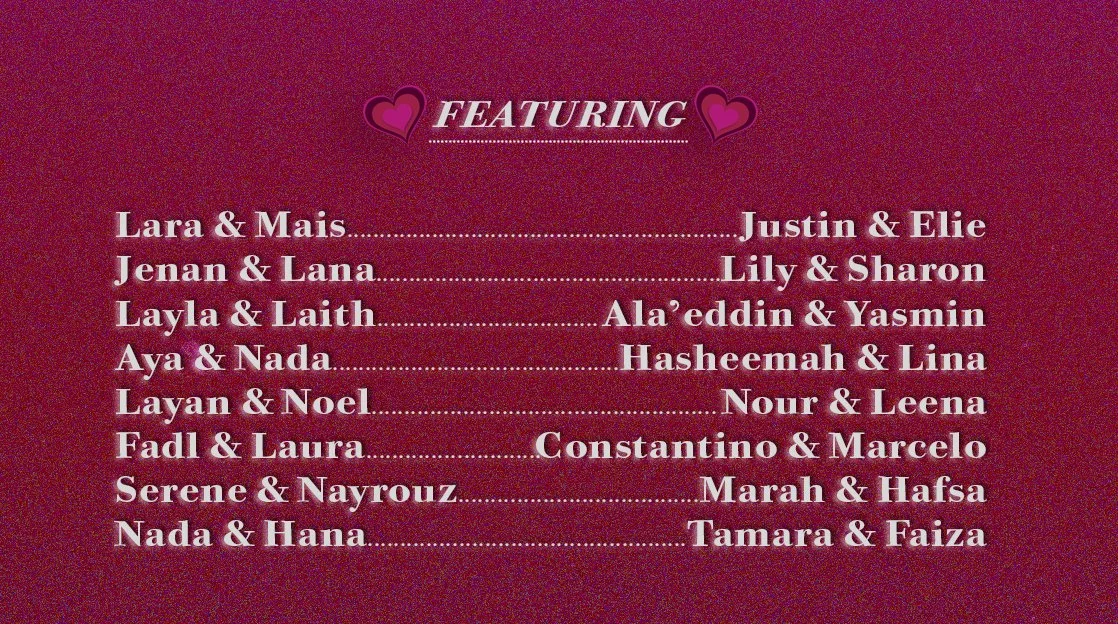We are happy to share the final set of interviews for the LOVE & INTIMACY video project. The LOVE & INTIMACY series is part of 'Palestine, IN-BETWEEN', a Center for Palestine Studies x LIFTA collaboration. These short films center intergenerational outlooks on love and intimacy in Palestine and the diaspora, with discussions highlighting—but not limited to— disconnects, desires, relationships, trauma, teaching, learning, and beyond. This series includes intimate interviews and conversations held between Palestinians who share a close relationship, including old friends, parents and children, grandparents and grandchildren, lovers, cousins, and more.
Conversations explore what has been inherited and what is being shed, as well as the ways in which taking care of ourselves and each other is to care for the collective—now and into the future. Dialogue moves beyond topics of love in the human-to-human sense, extending to the deep connections one shares with an object, time, smell, memory, land, and ritual.
This week we share conversations held between Marah and Hafsa, Tamara and Faiza, Serene and Nayrouz, and Sharon and Lilly. We’d like to thank all who participated in this series for your time, energy, and openness. You can watch the videos and follow the series on palestineinbetween.com, a blog and accompanying website to this program. All videos are made available on YouTube. A special thank you to Muna Daher for editing these videos, and Lena Mansour for Arabic to English translation.
'Palestine, IN-BETWEEN' is presented by CPS + LIFTA with Lena Mansour and Cher Asad with support from The Society of Fellows and Heyman Center for the Humanities, the Center for Archaeology at Columbia University and the Columbia Global Center | Amman.
Intro graphic by Ashay Bhave.





